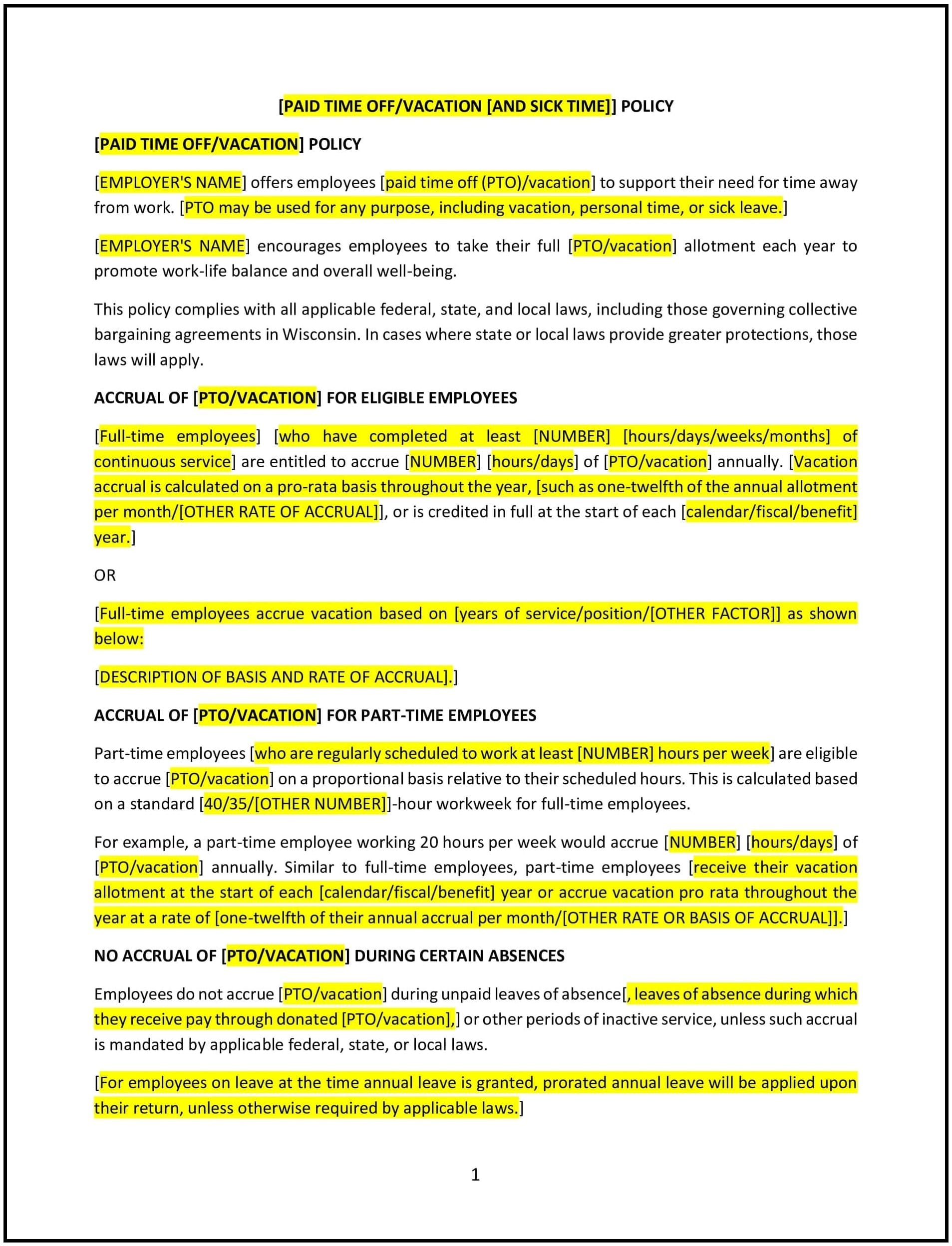Got contracts to review? While you're here for policies, let Cobrief make contract review effortless—start your free review now.

Customize this template for free
Vacation policy (Wisconsin)
In Wisconsin, a vacation policy establishes guidelines for accruing, requesting, and using paid or unpaid vacation time. This policy helps businesses manage employee leave while promoting work-life balance and maintaining operational efficiency. It ensures transparency and fairness in how vacation time is allocated and utilized.
The policy outlines eligibility criteria, accrual methods, procedures for requesting vacation, and guidelines for managing unused vacation time.
How to use this vacation policy (Wisconsin)
- Define eligibility: Clearly state which employees are eligible for vacation time, including full-time, part-time, or seasonal workers.
- Specify accrual rules: Outline how vacation time is accrued, such as monthly or annually, and whether unused time rolls over or is forfeited.
- Provide request procedures: Explain the steps employees must follow to request vacation, including required notice periods and manager approvals.
- Address unused vacation time: Specify company rules for unused vacation, such as rollover limits, cash payouts, or forfeiture policies, in accordance with Wisconsin laws.
- Support compliance: Ensure the policy aligns with Wisconsin labor laws and any applicable federal regulations.
Benefits of using a vacation policy (Wisconsin)
- Promotes work-life balance: Encourages employees to take time off to rest and recharge, leading to improved morale and productivity.
- Supports compliance: Helps businesses adhere to Wisconsin labor laws regarding vacation policies and payout rules.
- Ensures fairness: Provides a transparent framework for allocating and approving vacation time, reducing disputes.
- Improves planning: Establishes clear procedures for managing employee leave, minimizing disruptions to business operations.
- Enhances employee satisfaction: Demonstrates the company’s commitment to employee well-being by offering consistent and fair vacation benefits.
Tips for using a vacation policy (Wisconsin)
- Communicate the policy: Share the vacation policy with all employees during onboarding and ensure it is accessible for reference.
- Train managers: Provide training to supervisors on how to handle vacation requests fairly and consistently.
- Monitor vacation usage: Track employee vacation balances to ensure accurate recordkeeping and avoid scheduling conflicts.
- Encourage time off: Promote a culture where employees feel comfortable taking their vacation time without fear of negative repercussions.
- Review regularly: Update the policy as needed to reflect changes in Wisconsin labor laws or company priorities.